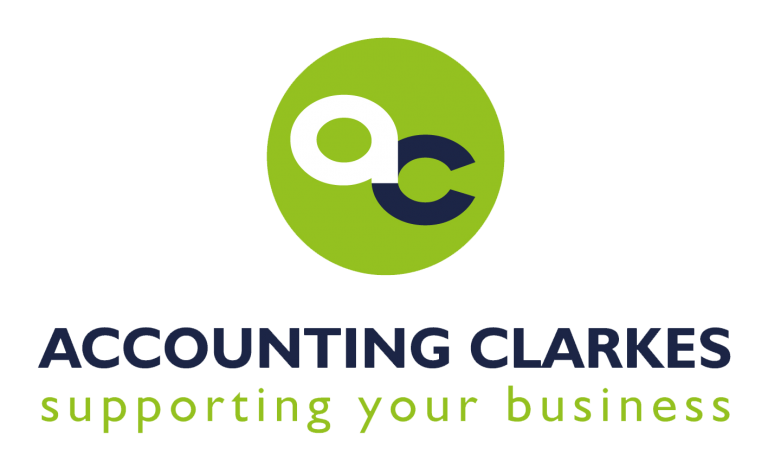

Most frequently asked questions and answers
✓ Working with Accounting Clarkes
Why select Accounting Clarkes?
With over 40 years of collective experience in business management, accountancy and bookkeeping, we provide a unique service that encompasses this knowledge and expertise to look after the health of your entire business.
Considering both your personal and business life balance, we offer a proactive and personal approach that aims to leave no question unanswered, no problem unresolved and no worry ignored.
What types of businesses do you work with?
We partner with businesses of all varieties including individuals, startups, partnerships, SMEs and international companies. These occupy a diverse range of sectors in professional B2B and B2C industries, including marketing, graphic and web design, market research and specialised product manufacturing. Along with our long-standing working relationships, we have extensive in-house capabilities and partnerships in the wider business and financial spheres. We make it our aim to help you with a wide variety of needs to provide peace of mind.
What types of services do you help your clients with?
Compliance is crucial. Yet, we also understand the challenges associated with running a business, which often include finding suitable resources and associates to support your business. That’s why we are far more than traditional accountancy and tax specialists. We offer complete business support too, as we want to help look after your complete financial wellbeing; not just a single aspect of it. After all, how can you achieve a work/life balance that enhances your business’s growth and allows you to focus on what you do best when we’re not looking at the whole picture? As well as our accountancy, tax and business support services, we provide advice and consultancy relating to your business needs. Find out more about the range of services we offer.
How do you charge?
Our first consultation is free. It is an opportunity for us to both get to know each other and enables us to understand you, your business and your exact requirements. Having listened to these needs, we will develop a proposal and go through the entire process. Once you’re happy, we will draft a letter of engagement, which details the service/s we will provide and their associated costs — so there are no unpleasant surprises. It is important that we spend this time finding a service and solution that fits you and supports your specific circumstances.
How do I appoint you as my accountant?
All you have to do is ask, and we will then take you through the next steps, simply and painlessly. Firstly, let us know if you have an existing accountant. You will need to inform your accountant that you will no longer wish to use their services. We will then send a formal letter requesting clearance, stating this, and asking that they send us any relevant information and documents. We will make sure your entire process is straightforward and stress-free
Do I already have to be self-employed?
No, not at all. We enjoy talking through your plans to go self-employed. We provide information and support on how best to manage this before deciding to run your own business.
What do information do you require from me?
If you’re interested in choosing Accounting Clarkes as your accountant, we will have an initial discussion with yourself and/or your business partner. The purpose of this is to make sure we can provide a service that fits you and your business’s needs. Once you’re happy, we’ll ask you to sign our letter of engagement. We will also ask to see a form of photo ID and proof of address. You can then rest assured that your business is being looked after capably, responsibly and proactively.
Do you have any software available that I can use?
Yes. We have a partnership with QuickBooks, which enables us to share a software licence with you for £12.00 + VAT per annum. Additional licences will be charged at competitive prices. We also engage with using cloud-based accounting software platform for small and medium-sized businesses, Xero, and enterprise software, Sage, to find the most appropriate solution for your business. Along with our management of your accounts, this intuitive and easy to use software provides you with a snapshot of all your business activities and allows you to keep on top of your business’s numbers. Depending on the needs of business and your industry, we will work together to select the right software package and computer system for you.
I’m interested in discussing further, what do I do next?
Contact us on 01252 413779 or 07796954685 to have an initial consultation, email us on gillian@accountingclarkes.co.uk or fill in our contact form, and we will call you back.
✓ Startups
How can I find out if I am employed or self-employed?
The first step is to refer to your contract and/or working arrangements. Your agreement should indicate whether you are employed or self-employed. If you are self-employed, you will be responsible for looking after your tax and national insurance contributions.
On the other hand, if you’re employed, this is typically the role of your employer.
Please bear in mind that tax affairs are your responsibility and we will only offer advice on your available options.
See the Gov UK for further help: https://www.gov.uk/employment-status
What do I have to do if I want to be self-employed and set up my own business?
First, you will need to locate your National Insurance number from a pay slip. You will need to register with HM Revenue & Customs (HMRC) if you want to start working as a self-employed individual.
You will also need to request a Unique Taxpayer Reference number (UTR) number, if you do not have one already.
After registering with HMRC, you will get your Unique Taxpayer Reference (UTR). Keep this safe as this recognises you as self-employed, and some organisations use this as proof of your self-employment.
What do I need to do to start an online business?
It doesn’t have to be complicated and overwhelming — that’s the good news. Whether you have a physical or online company, a business plan is an effective place to start. Use this to note key concepts, outline short-term objectives and plan longer-term goals.
It is an especially important document if you are looking for financial support including access to funding and investment.
Consider your business’s overview, strategy, marketing plans, team and management ideas, financial budgets and expectations.
Do I need to manage my finances personally or is this the role of an accountant?
At Accounting Clarkes, we also support you with business budgeting, forecasting and cash flow.
While you manage your finances, it is our role as your accounting partner to interpret this information and together, make a plan, which will support your business’s health and aspirations for growth.
How do I appoint you as my accountant?
All you have to do is ask, and we will then take you through the next steps, simply and painlessly. Firstly, let us know if you have an existing accountant. You will need to inform your accountant that you will no longer wish to use their services. We will then send a formal letter requesting clearance, stating this, and asking that they send us any relevant information and documents. We will make sure your entire process is straightforward and stress-free
✓ Sole trader and Limited company considerations
Can I choose between becoming a sole trader or a limited company? How do I make this choice?
Yes. We value our customers as people, as much as we look after their businesses. That’s why we consider a variety of options when making this decision, not just turnover.
We adopt a holistic approach. The personal aspirations of you, the business owner; your long-term plans for your company; and the needs and expectations of your specific industry are all factors to consider.
Do I need to set up a limited company?
A key consideration may be how comfortable you are with being personally liable for any debt associated with your business.
By setting up a limited Company, you are limiting your liability to the company’s value. A limited company has a separate legal identity from its directors and owners. This separates the business’s money from your personal savings and assets.
✓ VAT
When do I need to register for VAT?
If you are doing business in the UK, you may need to register for VAT. VAT registration applies to businesses regardless of whether you are an individual, a partnership, a company, a charity or an association.
If your annual turnover exceeds £85,000 in a rolling 12-month period, then you must register for VAT.
Can I register for VAT if my turnover is below the VAT registration threshold?
Yes. You can register for VAT voluntarily if you are doing business in the UK and the company’s turnover is below the threshold for registration.
What are the benefits of voluntarily registering for VAT?
It may be beneficial for your business if you regularly work with companies that charge VAT. Even if you fall below the VAT threshold, by voluntarily charging VAT on your sales, you may be able to claim this back on what you buy.
It is important to remember that if you choose to register for voluntary VAT, you have both the same rights and responsibilities as companies that must register for VAT.
We will explore and advise on a variety of VAT schemes to help you select the one that supports your company best.
✓ Payroll
How can I pay myself through the company?
If you are a limited company, you will typically pay yourself through a salary, where standard PAYE rules apply.
Both income tax and employees national insurance are taken from your gross salary. After paying employers national insurance, you will be left with a net salary.
You also have the option of drawing out dividends, if your company has made a profit, or for expenses accrued and paid on behalf of the company.
When should payroll be paid?
Salary can occur at any interval you choose and is determined by what is appropriate for your business, i.e. weekly or monthly.
Income tax and national insurance have to be paid either monthly or on a quarterly basis. How frequently you pay these will depend on how much monthly income is expected to enter the business.
How do I set it up?
Your accountant can help you to set payroll up for your business. Alternatively, you can register as an employer on the HMRC website by filling in the relevant forms.
After filling in basic company details including information on your directors and registered address, you will receive a PAYE reference number. This number will indicate your PAYE office, and once received, you will be able to start payroll.
We use HMRC-approved payroll software that presents real-time information (RTI). Users also have the option to view and access payslips online.
How do I pay HM Revenue and Customs (HMRC)?
You can pay HMRC in one of several ways: By direct debit, direct payment, BillPay, by post, at the post office or your bank.
What information do I need to pay an employee?
You require the following information to process an employee’s pay, and so this should form part of the recruitment enrollment process:
– Title
– Full name
– Address
– NI number
– Date of birth
– Start date
– When payroll will take place, i.e. weekly, fortnightly, monthly
– Tax code
– Job role
– Hourly rate of pay or annual salary
If you have any other questions, please don’t hesitate to contact us. We’re only a phone call or email away.